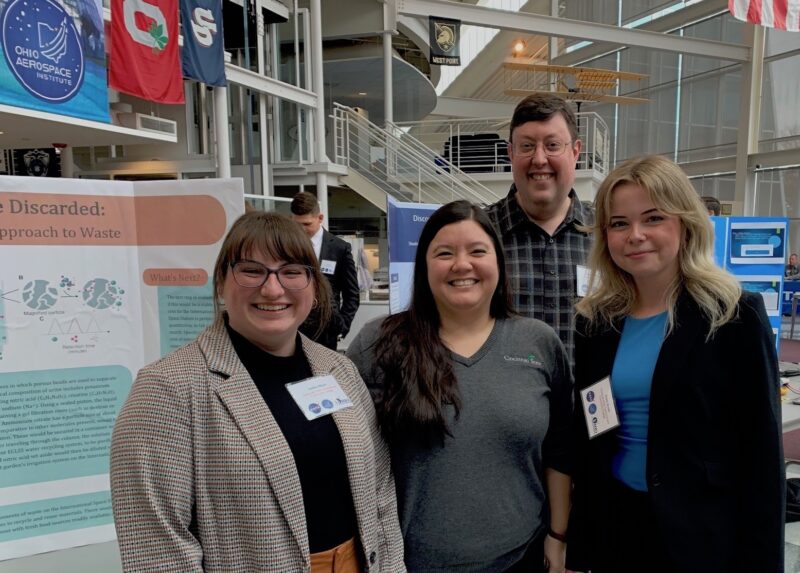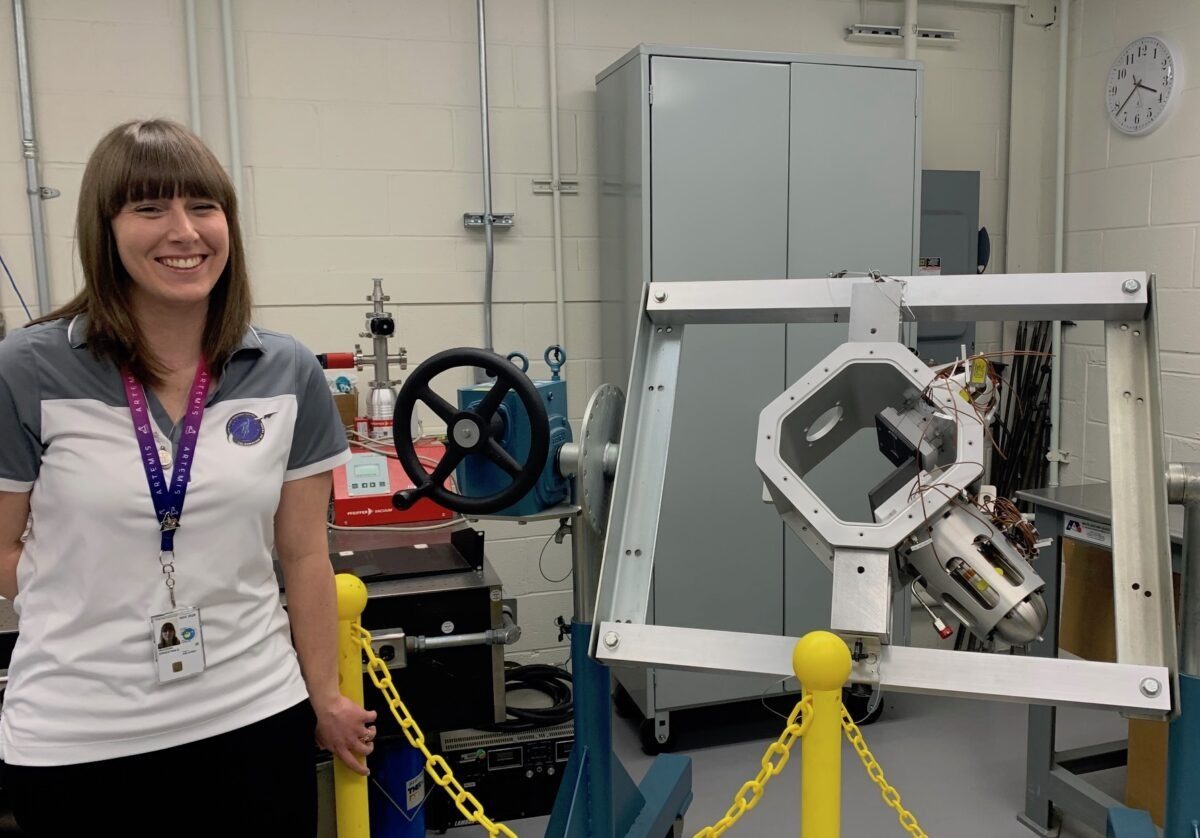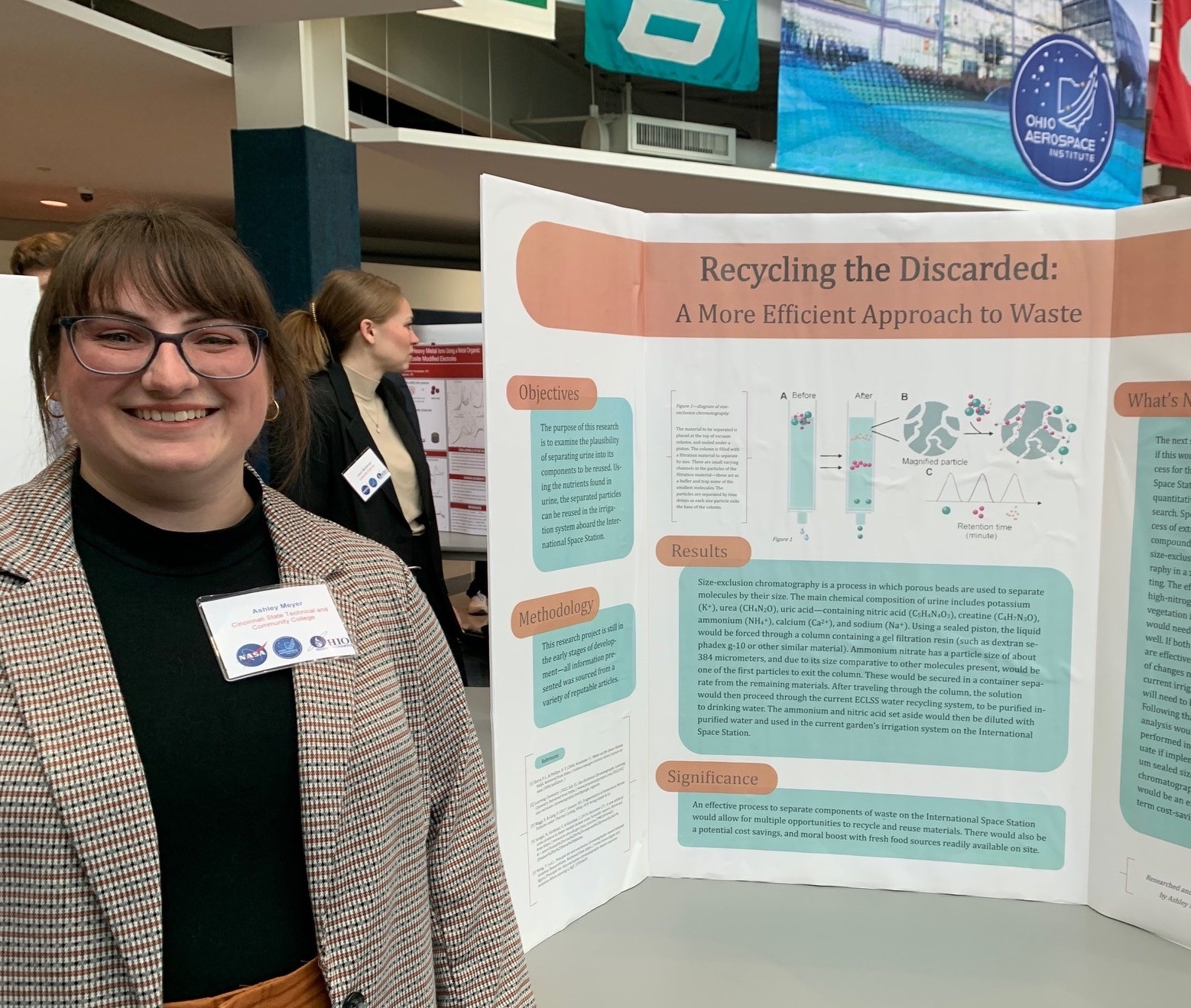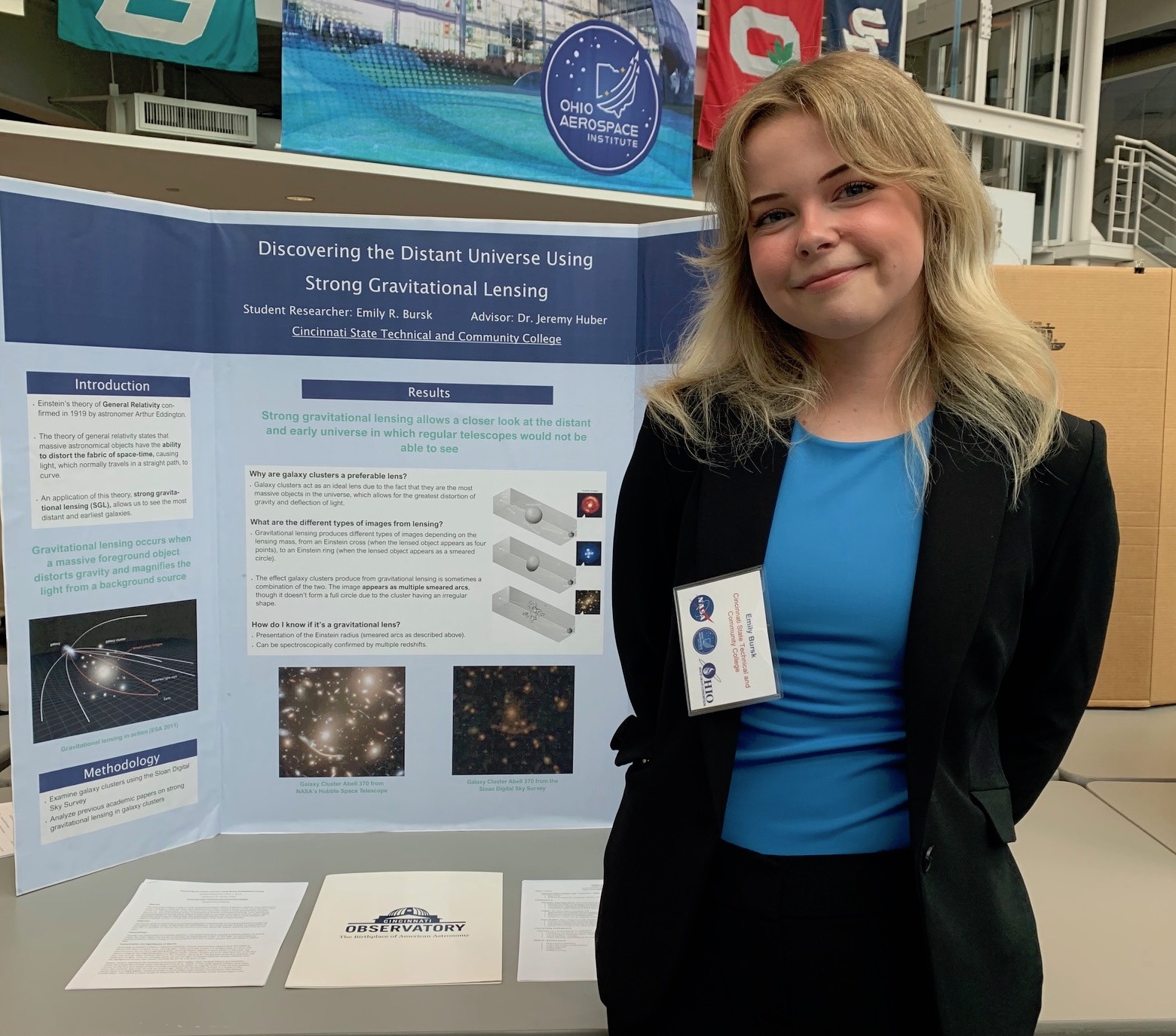CState students presented their research at Ohio Space Grant Consortium Symposium

Two Cincinnati State students shared their research projects at the 2023 Ohio Space Grant Consortium Symposium that took place in late March at the Ohio Aerospace Institute in Cleveland, OH.
- Emily (Emmy) Bursk, an Associate of Science major with an interest in Astrophysics, presented a poster session on “Discovering the Distant Universe Using Strong Gravitational Lensing.”
- Ashley Meyer, who is majoring in Chemical Technology, presented a poster session on “Recycling the Discarded: A More Efficient Approach to Waste.”
Both Emmy and Ashley were recipients of $1,000 Ohio Space Grant Community College Scholarships awarded to students in STEM fields (Science, Technology, Engineering, and Mathematics) through a competitive application process. Scholarship requirements include conducting research and presenting the research at the Symposium.
The scholarships are funded by the U.S. Congress to the National Space Grant College and Fellowship Program and administered through the National Aeronautics and Space Administration (NASA).
Faculty members Abbey Yee (Mechanical Engineering Technology) and Jeremy Huber (Physics) also attended the Symposium. Jeremy served as the mentor for Emmy’s research project and Abbey has served as the College’s liaison for Ohio Space Grant activities for several years.

After the Symposium, the Cincinnati State delegation spent time with Tina (Ernestina) Wozniak (née Schirmer), a Cincinnati State alumnus who is a past recipient of an Ohio Space Grant scholarship.
Tina led the group on a tour of her lab at the NASA Glenn Research Center in Cleveland, where she is an engineer in the Dynamic Radioisotope Power Systems (DRPS) group. The research group is developing Stirling engines (heat engines) for mobile power systems.
In the photo, Tina is standing next to a prototype for a new engine NASA Glenn is developing that will be powered by radioactive isotopes, providing a power source for use in deep space when typical power options are not available.
The Glenn Center’s focus is to “design and develop innovative technology to advance NASA’s missions in aeronautics and space exploration.”
Tina earned degrees in Mechanical Engineering Technology and Electro-Mechanical Engineering Technology – Lasers in 2017, and also earned the Pre-Engineering Associate of Science degree in 2018. She then completed a Bachelor of Science in Aerospace Engineering at Purdue University.

